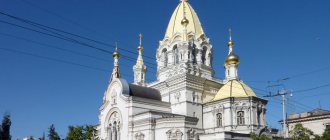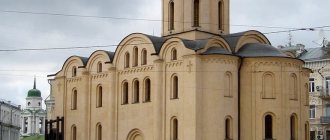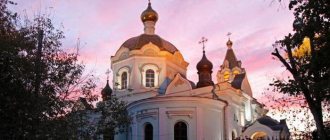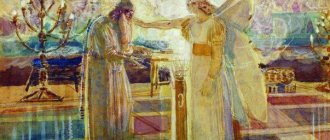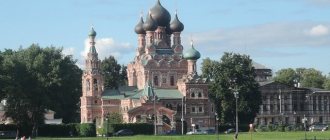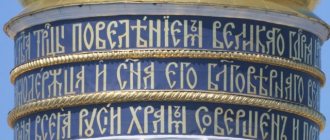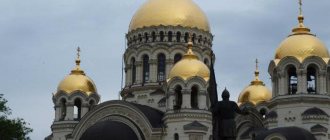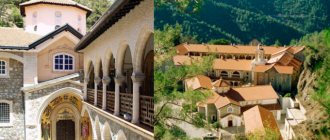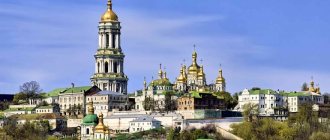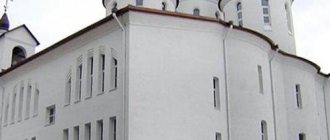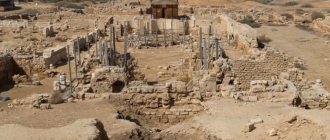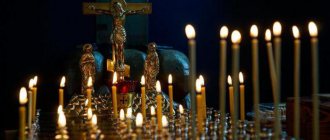Prophetic activity according to the Bible
With their speeches, the prophets communicated the will of the Almighty to the chosen people of Israel, and also proclaimed the coming of the Messiah (Savior). Their activities are described in the largest part of the Bible, that is, in the Old Testament. The role played by the prophets in the religious development of Israel was great. The Old Testament assumed a two-way relationship between man and God. Prophets are the sources who conveyed the revelations of the Lord to God's chosen people, that is, the Israelites. The teaching that the prophets brought to us, as a rule, consists of three elements characteristic of the Old Testament:
- faith in one God;
- moral behavior;
- waiting for salvation.
Prophetic activity takes place in Israel and Judea from the 8th to 4th centuries BC, although there are some prophets who lived earlier, such as Samuel and Moses. The Old Testament included only 12 works of minor prophets, as well as four works of great prophets, although there were more of them. The 12 minor prophets included Amos, Jonah, Avdei, Zechariah, Malachi and others. Today you will find out who the prophet Malachi is and why he was called the “seal of the prophets.”
Prophecy of the Popes[edit]
Main article: Prophecy of the Popes
St. Malachy is credited with the "Papal Prophecy", which is said to predict that there will be only 112 popes before the Last Judgment. Benedictine Arnold de Vaillon discovered and published the so-called "Doomsday Prophecy" in 1590. Most scholars consider the document to be an elaborate 16th-century hoax. [11] James Weiss, professor of church history at Boston College, stated: "It is widely believed that ... given who the author was and his relationship, [the prophecies] were published to justify the election of one of them. specific cardinal." [12] Thomas Groom, chair of the Department of Religious Education and Pastoral Ministry at Boston College, is of a similar opinion: "To me - and even as a native Irishman - The Prophecies of St. Malachy is a grand old funny tale with about as much reliability like a morning horoscope." [12] Thomas J. Reese, a senior physician at Georgetown University, had only this to say: “The prophecy of St. Malachi is nonsense.” [12]
Brief information
The prophet Malachi belongs to the 12 minor biblical prophets. If you believe the Holy Scripture, it says that Malachi was from the tribe of Zebulun. He passed away at a young age. His prophetic activity took place at a time when the temple of Jerusalem was rebuilt after the capture. This is approximately 400 BC. The Holy Prophet Malachi severely reproached people for their lack of diligence in sacrifices. He denounced the priests for deviating from the faith, threatened them with God's Judgment for blasphemy and various vices, and also clearly predicted the coming of the Savior, the appearance of John the Baptist and the imminent Judgment of God. The memory of the prophet in the Orthodox Church takes place on January 3 according to the old style, or January 16 according to the Gregorian calendar.
Relics [edit]
Bone fragment of Saint Malachy, Clairvaux Abbey
The body of Saint Malachy remained in the Abbey of Clairvaux and was eventually placed in a tomb next to Bernard of Clairvaux after the death of the abbot himself. When the church was rebuilt, the tomb was moved several times. Parts of his remains were sent to Ireland in 1194 and deposited in Mellifont Abbey and other Cistercian abbeys. At some point in Clairvaux, part of Malachy's hand and part of his skull were removed and placed in special reliquaries in the abbey's treasury. His hand was kept in a silver case decorated with precious stones. Part of his skull was kept in a bust of gilded silver, also decorated with precious stones and surmounted by a miter. These relics could be enameled or painted. During the French Revolution, the relics themselves were destroyed, but the relics were preserved. Malachy's head is now kept in a reliquary in the treasury of Troyes Cathedral, near the city of Clairvaux. The tombs of the two friends and saints were destroyed after the revolution, and the bones were mixed and distributed to various parishes in the Clairvaux area. [7] F. Guignard published an account of the relics in Patrologia Latina.
[8]
Life of a Saint
The prophet Malachi lived piously. He brought people into admiration and surprise because his life was pure, like an angel of God. His name means “angel of the Lord” in Hebrew. Since Malachi was called to serve as a prophet, he became a zealous champion of faith, piety and law. When the Jews returned from captivity, they had many moral and religious problems, which became even more numerous due to the carelessness of the priests. Looking at this picture, the prophet Malachi was outraged and upset, after which he had to speak out threateningly and denounce the people.
His speech was about the fact that they do not treat God with due reverence and reverence and make insufficient sacrifices. He told the priests that because of their wrong activities, people deviate from God’s path, because they do not keep the commandments and are hypocrites. In this way they dishonor God and succumb to temptation. He condemned the people for treacherously violating the covenants of their fathers and ancestors, for husbands treating their spouses unfairly, rejecting their lawful wife and living with foreign women. In his speeches, God's messenger threatened all people with the judgment of the Almighty for various vices, including adultery, witchcraft and sorcery, for taking false oaths, for offending and oppressing orphans and widows, for breaking and fulfill the law of offerings in temples.
His words affected the Jews because they spoke impudent and bad words. As if serving God is vain and useless, as if there is no point in keeping the commandments. They said that the wicked who commit lawlessness live better and have no troubles. In his work, Malachi exposed human sins, and also simultaneously saw the coming of the Savior, and before that, the appearance of the Forerunner and God's speedy judgment for the wicked. He died at a young age, and he was buried with his ancestors in his native village of Sufa. In Orthodoxy, he is called the “seal of the prophet” because he was the last of the Old Testament prophets.
Structure and content of the book
The book of Malachi can be divided into six thematic parts[3].
- The book of Malachi begins by contrasting God's beloved Israel with His hated Edom (Malachi 1:2–5).
- Then follows a reproach for the priests who dishonor the Lord by their negligence in the practice of worship, and a curse for deviating from the path of the Covenant (1:6–2:10).
- The next invective is directed against divorcing Jewish wives in order to marry non-Jewish women (2:11). Such an action is interpreted as “humiliation of the holiness of the Lord,” for God “was a witness between you and the wife of your youth” (2:14).
- The fourth part opens with a rebuke to those who doubt the justice of the Lord (2:17), and the promise of the speedy coming of God's messenger who will precede the appearance of the God of Israel Himself in His temple, coming as a cleansing fire and a righteous judge (3:1–4).
- In the fifth part (3:5–12), Israel is accused of not paying temple tithes: Israel robs its God and therefore suffers from locust plagues, droughts and crop failures. The author is generally very zealous about the temple service. This section ends with a promise to reward Israel with abundance if they do not shirk their tithes.
- The sixth section (3:13–24) promises reward for the “reverent” and punishment for the “haughty” on the day of the Lord, when judgment is accomplished. Before the onset of this terrible day, the Lord will send the prophet Eliyahu (Elijah), “and he will turn the hearts of the fathers to the children and the hearts of the children to their fathers, so that I do not come and smite the earth with destruction.”
Connection with other books
Like Haggai and Zechariah, the book of Malachi expresses a new view of prophecy in its final stage, after the Babylonian captivity.
As in the books of Ezra (9:2; 10:3, 16–44) and Nehemiah (10:31, 33–40; 13:10–14; 23–29), Malachi primarily argues against three objects:
- degeneration of the priesthood,
- marriages with non-Jews and
- negligence and stinginess of the people in paying the temple tax[4].
The announcement of the coming of Eliyahu and the advent of the messianic era - a motif present in embryonic form in Ezekiel and central to the book of Daniel - makes the book of Malachi a forerunner of the apocalyptic genre.
In the original, the book of Malachi is divided into chapter 3, and Protestant editions of the Bible follow this division. In the Septuagint, Vulgate, Slavic and Russian, the book of Malachi is divided into four chapters, so that the third chapter of the TaNakh is divided into two: the first verse of the fourth chapter of the Christian Bible is the 19th verse of the third chapter in the TaNakh.
Interpretation of the prophet Malachi
The theological works of the saint have survived to this day. This book has four chapters that set out his prophetic speech, instructions to the people and priests. It contains words denouncing the moral and ethical shortcomings of the Jewish people, as well as the threat of punishment by God.
The essence of his book is that he protests against the careless attitude towards liturgical matters. He especially criticizes the priests and Israelis who did not fear God and abandoned their lawful wives. Malachi wanted his speeches to contribute to the restoration and strengthening of morality among the Israeli people. He believed that his main goal was to prepare people for the coming of the Almighty, but among the Jews there were impatient ones who began to question the prophecies that the Lord would come. Malachi argued the opposite, that He would soon be with the people.
Visio Tnugdali [edit]
The Visio Tnugdali, written about 1149, speaks of Malachy as follows: When Saint Ruadan fell silent, Tundale looked around happily and saw Saint Patrick of Ireland dressed in shining robes, next to many bishops dressed in their best regalia. Everyone was happy and there was not a sound! Among this blessed company Tundale saw four bishops whom he recognized. They were all good people; one of them was Saint Cellach, the former archbishop of Armagh, who did much good for the sake of our Lord. The other was Malachi O'Moore
, who after him became Archbishop of Armagh and gave everything he had to the poor. He founded a large number of churches and colleges, forty-four in all, endowed them with land and rents, and thus enabled many religious people to serve God faithfully, although he scarcely retained sufficient means of living
.
What else did the prophet talk about?
The saint always repeated that the Lord loves every person, that our Almighty demands respect. He made comparisons that just as a son honors his father, so a slave must respect and fear his master. Malachi very often asked a rhetorical question: does not mankind have one Father? Didn’t the Lord God alone create each of us?
His words contain thoughts that God is a judge and a deliverer at the same time for each of us. Humanity must observe his laws, for this he will bless us and accept us into his kingdom. When a person comes to the temple, he must sacrifice something. It can be in the form of a purchased and lit candle near the image of a Saint, in the form of money that you donated to help a temple or a beggar, in the form of donated time for God - this is also a kind of sacrifice that must be made with a pure, clear mind and heart .
Life [edit]
Mael Maedoc, whose surname was Ua Morgair, was born in Armagh in 1094. Saint Bernard describes him as being of noble birth. [1] He was baptized Máel Máedóc, meaning "devotee or servant" of Maedoc (Saint Maedoc of the Ferns), which in Latin translated as "Malachus"
(and subsequently as
Malachi
in English), and was later known as the fierce Malachi. The boys around the city also called him "giddley features" and was trained under the famous hermit Imhar O'Hagan, later Abbot of Armagh. Imhar sympathized with the aims of those who sought to reform the Irish Church, and it was probably through his influence that Malachi became imbued with their principles. After much study, Malachy was ordained a priest by Saint Cellachus (Celsus) in 1119.
Soon after this, Cellach made the young priest his vicar. For the next year or two, Malachy's duty was to govern the diocese of Armagh. He established in all churches the apostolic sanctions and decrees of the holy fathers, as well as the customs and practices of the Roman Church. He introduced the Roman method of chanting the services of the canonical hours, and instituted a new profession, confirmation, a marriage contract, in which those to whom it was assigned were either ignorant or careless. [2] With the consent of Cellach and Imar, he went to study with Mael Osu Ua hainmer (Malchus, first bishop of the Norwegian city of Waterford), who had by this time retired from the Archbishopric of Cashel and settled in Lismore. He spent three years there.
Prayer to the saint
They say that the prophet Malachi helps against damage. This is partly true. In the life of any person, various troubles very often occur. A person, out of his own superstition, which is also a sin, begins to look for remedies and prayers to remove the evil eye and damage. The priests in the churches say that a true Christian, a correct believer in God, who observes all church canons, will not be taken in by any magic spell. This is explained as follows: if a person regularly prays, goes to confession, and then takes communion, then his soul becomes so pure and bright that dark forces are not able to take possession of it, and therefore the human body itself.
While standing, an akathist is sung to the prophet Malachi, as well as to the rest of the saints of the Orthodox Church. It consists of kontakia, which contain the biography of the saint. Like any other saint, the prophet Malachi protects the believer. The prayer against corruption was invented by the Orthodox, not by the saints. To help your soul cleanse, you need to read:
- Kontakion 1, tone 4;
- kontakion 2;
- troparion, tone 2;
- Troparion, tone 4.
Also in the Orthodox prayer book there is a prayer in which a person turns to a saint. It begins with the words: “O most praiseworthy and wonderful, prophet of God Malachi...”
WHY IS THE LAST POPE FRANCIS PETER THE ROMAN?
“Let me explain, maybe someone doesn’t understand why Pope Francis whose name in the world is Jorge Mario Bergoglio became Peter. When elected Pope, he took the name Francis in honor of St. Francis of Assisi. Let's move on to Francis of Assisi, his full name is Giovanni Francesco di Pietro Bernardone. When the father was away, the mother named her son Giovanni, but the father, returning from France, gave him the name Francis. His dad's name was Pietro Bernardone. Whether it is possible to associate Pope Francis with Peter by the name of Father Francis of Assisi, well, I don’t know. Although the prophecies regarding other popes are also quite interesting in interpretation. For example: John Paul I is indicated in the prophecy as “From the middle of the moon.” Born on October 17, 1912, when the moon reached its half. St. John Paul II in the prophecy “From a solar eclipse.” Born on May 18, 1920, on the day of a partial solar eclipse observed in the Indian Ocean region. He was buried on April 8, 2005, on the day of a rare hybrid total solar eclipse observed in the Pacific Ocean. The prophecy itself about the last Pope of Rome sounds like this: “During the last persecutions of the Holy Roman Church, Peter the Roman will sit, who will tend the sheep among many torments; after which the city of seven hills will be destroyed, and the terrible Judge will judge his people. End." In fact, the prophecy can be conditionally divided into 2 parts, since it is about the last Pope of Rome and there will be no more popes, which means the Holy See will fall, along with the Pope, of course. And the second part talks about the arrival of the Judge in the world, interesting right? There is another prophecy about the fall of the Holy See and the death of the Pope, and if you compare them, and also compare some dates, a very interesting picture emerges. Only there will be one small piece missing from the puzzle, small but very important. The Holy See hid this detail...
***
In addition to protection from magic
If you suffer from witchcraft spells, then during the day you need to read the prayers “Our Father”, “Rejoice to the Virgin Mary”, “Creed”, as well as Psalm 90 as often as possible during the day. Start the day with morning prayers, then take holy water on an empty stomach with the words assigned for it. It is necessary to end the day with similar evening prayers.
You should not use the book “The Prayer Shield of an Orthodox Christian,” despite the fact that its publication is approved by the priest. Such a book contains pseudo-Orthodox prayers with elements of conspiracies (and this is witchcraft), which are elements of magic prohibited by the Orthodox faith.
Rector of Bangor
In 1123 Bangor Abbey died. Bangor was the main religious site in the north-east of Ireland. Since he ended his days in Lismore, it can be assumed that he was a friend of Malchus and the movement with which he was identified. His successor, Malachy's uncle, expressed his willingness to transfer his office and the monastery site to his nephew. Malachy became abbot of Bangor Abbey.[2]
This became an opportunity to implement one of the canons of the Synod of Rathbrysaile, which established the diocese of Connor. Cellach, as Patrick's rapist and consecrated bishop, managed to organize the diocese of Armagh in accordance with Rathbreasail's plan. With the prestige that belonged to the Comgall clan, Malachy, had he been ordained bishop, would probably have been able to organize the diocese of Connor. In 1124 Malachy went to Bangor, was installed as abbot, and was made Bishop of Cellach.[2]
In 1132 he was promoted to the primacy of Armagh.
St. Bernard gives many interesting anecdotes about St. Malachy and commends Malachy's zeal for religion both in Connor and Armagh. In 1127 Malachy visited Lismore for a second time and for a time acted as confessor to Cormac MacCarthy, Prince of Desmond. While Bishop of Down and Connor, Malachy continued to reside in Bangor, and when some of the local princes sacked the two dioceses of Down and Connor, Malachy led the monks of Bangor to Iveragh, County Kerry, where they were welcomed by King Cormac. Following the death of Saint Celsus (buried in Lismore in 1129), Saint Malachy was appointed Archbishop of Armagh in 1132, which he accepted with great reluctance. Due to intrigue, he was unable to take possession of his See for two years; even then he had to buy the Bachal Isa (Staff of Jesus) from Niall, the usurper of the put-primate.[1]
Saint Malachy's influence on Irish ecclesiastical affairs has been compared to that of Boniface in Germany. Within three years in Armagh, as Bernard of Clairvaux writes that Saint Malachy restored discipline in the Church, which had weakened during the invading reign of a number of lay-abbots, and the Roman liturgy adopted.[1] Saint Malachy worked diligently to restore church discipline, restore marriage, update the practice of confession and confirmation, and introduce Roman chants into the liturgy. He was also known for his care for those in need as a miracle worker and healer. During his lifetime, he planted apple trees throughout Ireland during a famine.[3]
St. Bernard continues: Having eradicated barbarity and restored Christian morality and seeing all peace, St. Malachi began to think about his own world. He therefore resigned from the visions of Armagh and Connor, in 1136 or 1137, but was retained as Bishop of Down. He founded the monastery of Austin Canons at Downpatrick, and was incessant in his episcopal labors. Early in 1139 he traveled to Rome via Scotland, England and France, visiting St. Bernard at Clairvaux, champagne. He petitioned Pope Innocent II for a pallium for the seers of Armagh and Cashel, and was appointed a legate for Ireland. On his return visit to Clairvaux he received five monks to found in Ireland, with Christian, an Irishman, as senior: thus arose the great Abbey of Mellifont in 1142. St. Malachy went on a second journey to Rome in 1148, but on his arrival in Clairvaux fell ill and died in the arms of Saint Bernard on November 2, 1148.[4]
